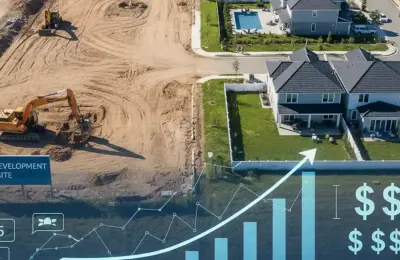
How to Become a Real Estate Agent in Australia: A Complete Guide

Dreaming of a dynamic career with high earning potential in sunny Australia? Working as a real estate agent could be your ideal choice! This is an exciting profession that combines sales, working with people, and deep market knowledge. However, to become a licensed agent in Australia, you must follow a clear path that varies by state or territory.
This SEO-optimized article will provide you with a comprehensive guide on how to launch your career in the Australian real estate industry.
Key Factor: State and Territory Legislation
The most important thing to know is that there is no single national real estate license in Australia. Educational, experience, and licensing requirements are set by the individual regulatory bodies of each state (e.g., NSW Fair Trading, Consumer Affairs Victoria).
Your first step is to determine which specific state or territory you plan to work in and check their concrete requirements.
General Steps to Become a Real Estate Agent in Australia
While the specifics differ, the process generally includes the following universal stages:
Step 1: Meeting Basic Requirements
Before starting your education, ensure you meet the core criteria:
Age: You must be at least 18 years old.
Work Rights: You must be a citizen or permanent resident of Australia, or hold an appropriate working visa.
Suitability: You must be a "fit and proper person," which usually involves a criminal history check.
Step 2: Gaining Education and Qualification
To begin working in real estate, you need an accredited qualification from a Registered Training Organisation (RTO).
Entry Level (Assistant Agent/Agent’s Representative):
In most states, you start by completing a short course (e.g., the Assistant Agent Course in NSW or the Agent's Representative Course in VIC).
This allows you to obtain a Certificate of Registration or equivalent permit to work under the supervision of a licensed agent.
Full Agent (Full Real Estate Agent):
To obtain a full agent license (e.g., Class 2 License in NSW), you need to complete the Certificate IV in Real Estate Practice (CPP41419).
This certificate is the key qualification covering all aspects of real estate practice.
Step 3: Gaining Supervised Experience
The qualification alone does not grant you a full license. You must gain practical experience under the guidance of a licensed agent.
Experience Requirement: Typically, a minimum of 12 months of full-time work as an assistant agent or representative is required.
Logbook: In some states (e.g., NSW), you must document the completion of a minimum set of professional tasks in a dedicated logbook.
Step 4: Applying for the Agent License
After completing the necessary education and gaining experience, you can apply for a full real estate agent license through the relevant regulatory body in your state.
What is needed for the application (generally):
Proof of qualification (e.g., Certificate IV).
Evidence of accumulated experience (logbook, reference letters).
Payment of the licensing fee.
Identity documents and clear criminal history check.
How to Progress: Opening Your Own Agency
If your ultimate goal is to open your own agency or work as a Principal Agent, you will need the highest level of licensing (e.g., Class 1 License in NSW).
Qualification: This usually requires a Diploma of Property (Agency Management) (CPP51122) or an equivalent diploma.
Additional Experience: You must have additional experience working in senior roles (often 2 years as a Class 2 Agent).
Tips for a Successful Career Start
Specialization: Decide what interests you most: Residential Sales, Property Management, or Commercial Real Estate.
Networking: Join industry associations (e.g., REIA, REINSW) and actively build professional contacts. Real estate is a relationship-based business.
Marketing: A modern agent must have digital skills—from promoting properties on social media to creating high-quality content.
Continuous Learning: Licenses require annual or biennial renewal, which includes mandatory Continuing Professional Development (CPD).
Important: Checking State Requirements
Before enrolling in a course, always check the most current requirements directly on the official websites of your state's regulatory bodies:
| State/Territory | Regulatory Body (Example) |
|---|---|
| New South Wales (NSW) | NSW Fair Trading |
| Victoria (VIC) | Consumer Affairs Victoria (CAV) |
| Queensland (QLD) | Office of Fair Trading (OFT) |
| Western Australia (WA) | Department of Mines, Industry Regulation and Safety (DMIRS) |
News insight
 Nov 18, 2025
Nov 18, 2025
Property Developer Earnings in the US Market: A Comprehensive Overview
Explore how US property developers earn money. Learn about profit margins (Residential vs. Commercia...
 Nov 18, 2025
Nov 18, 2025
What Is a Build-to-Rent (BTR) Development?
Discover what a Build-to-Rent (BTR) development is. Learn about this growing real estate model, its...
 Nov 17, 2025
Nov 17, 2025
Build-to-Rent: Transforming America's Housing Landscape
Explore how the Build-to-Rent (BTR) model is transforming the US housing market. Learn why instituti...
